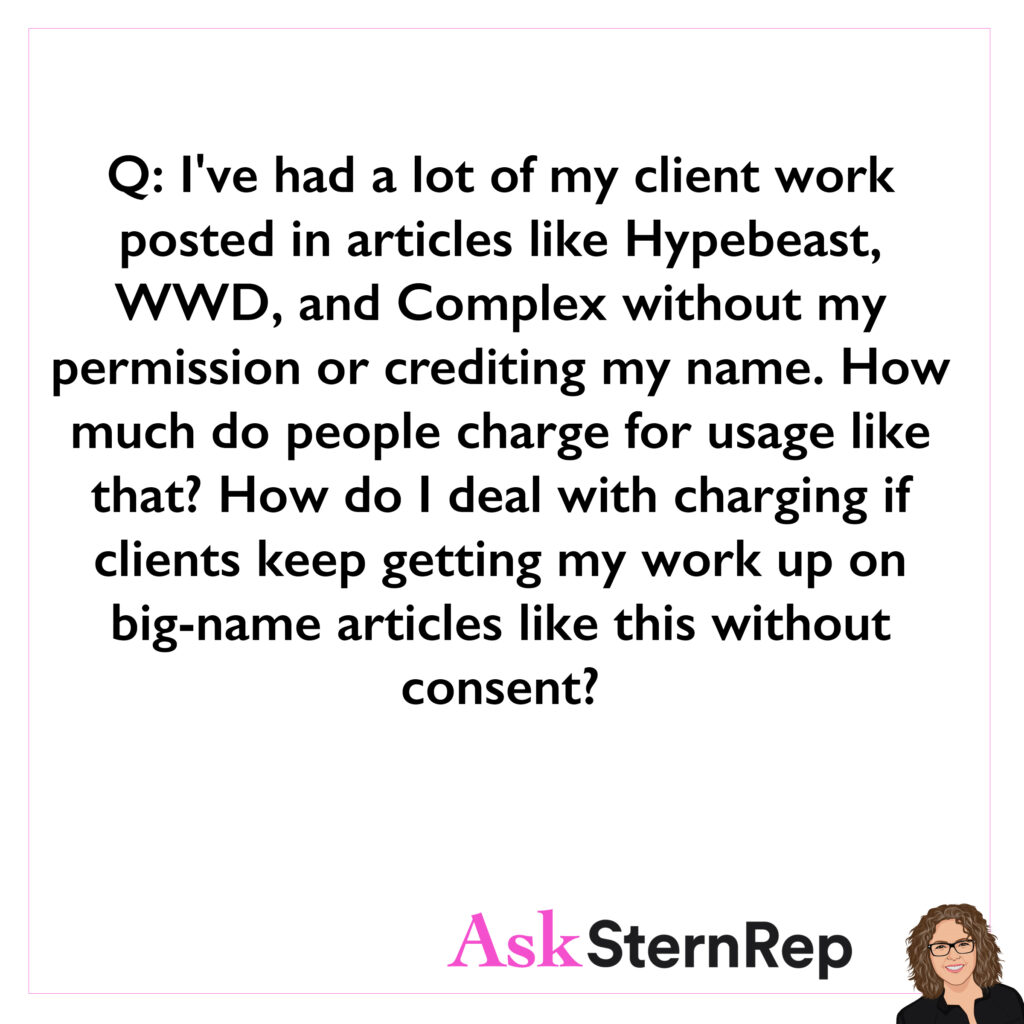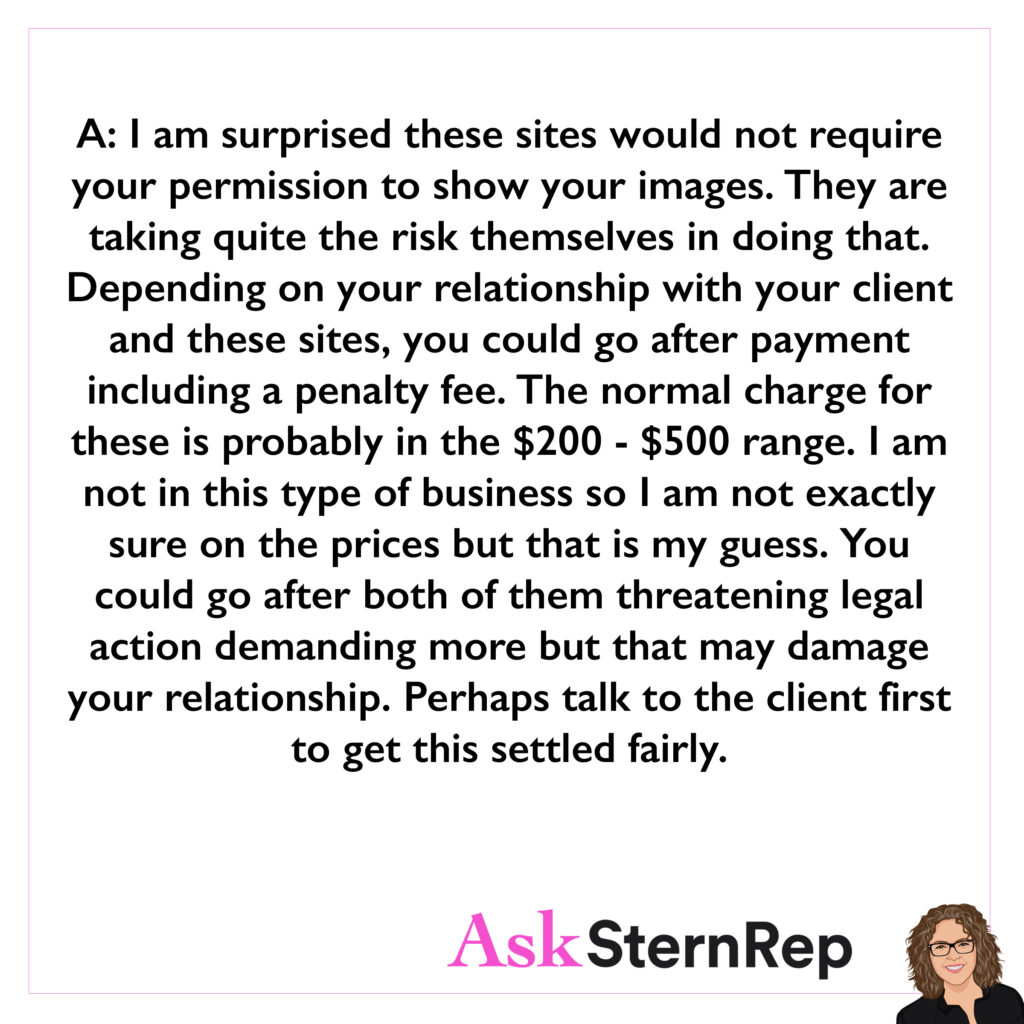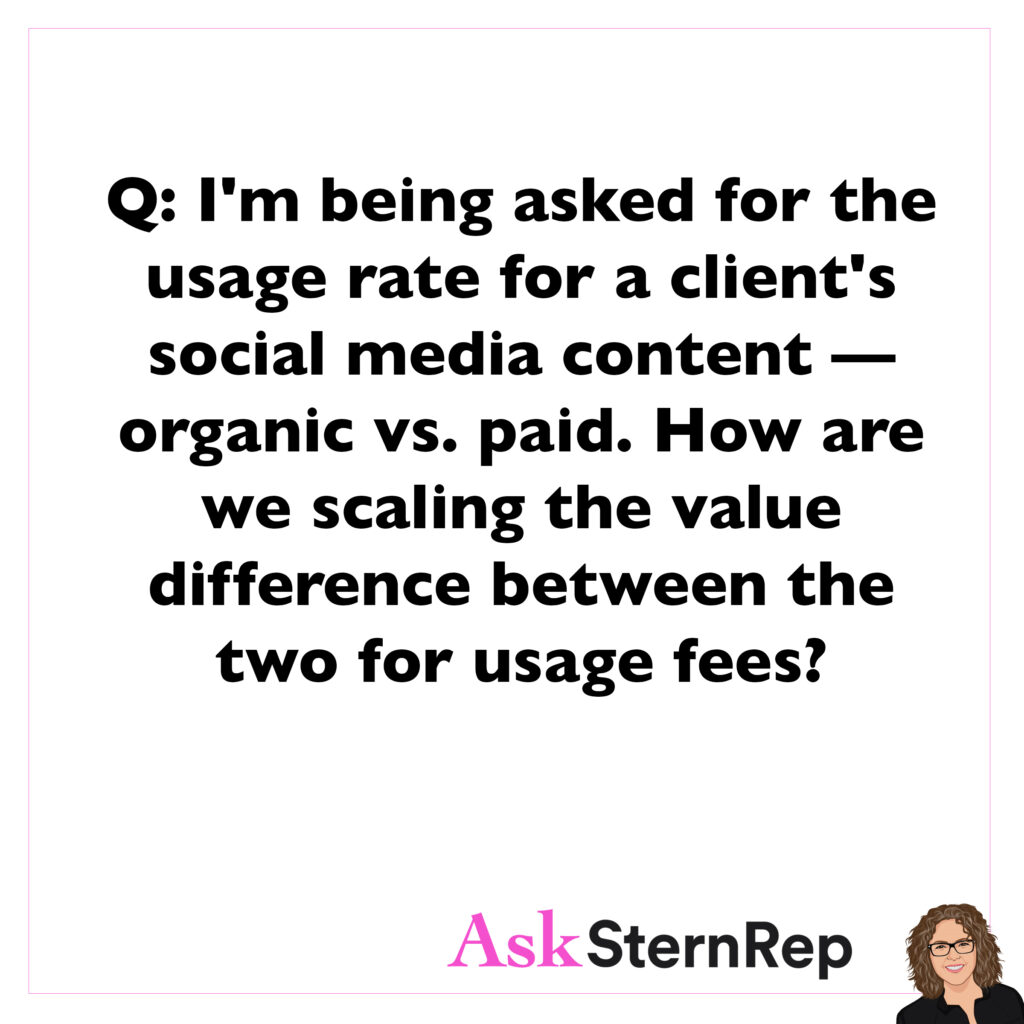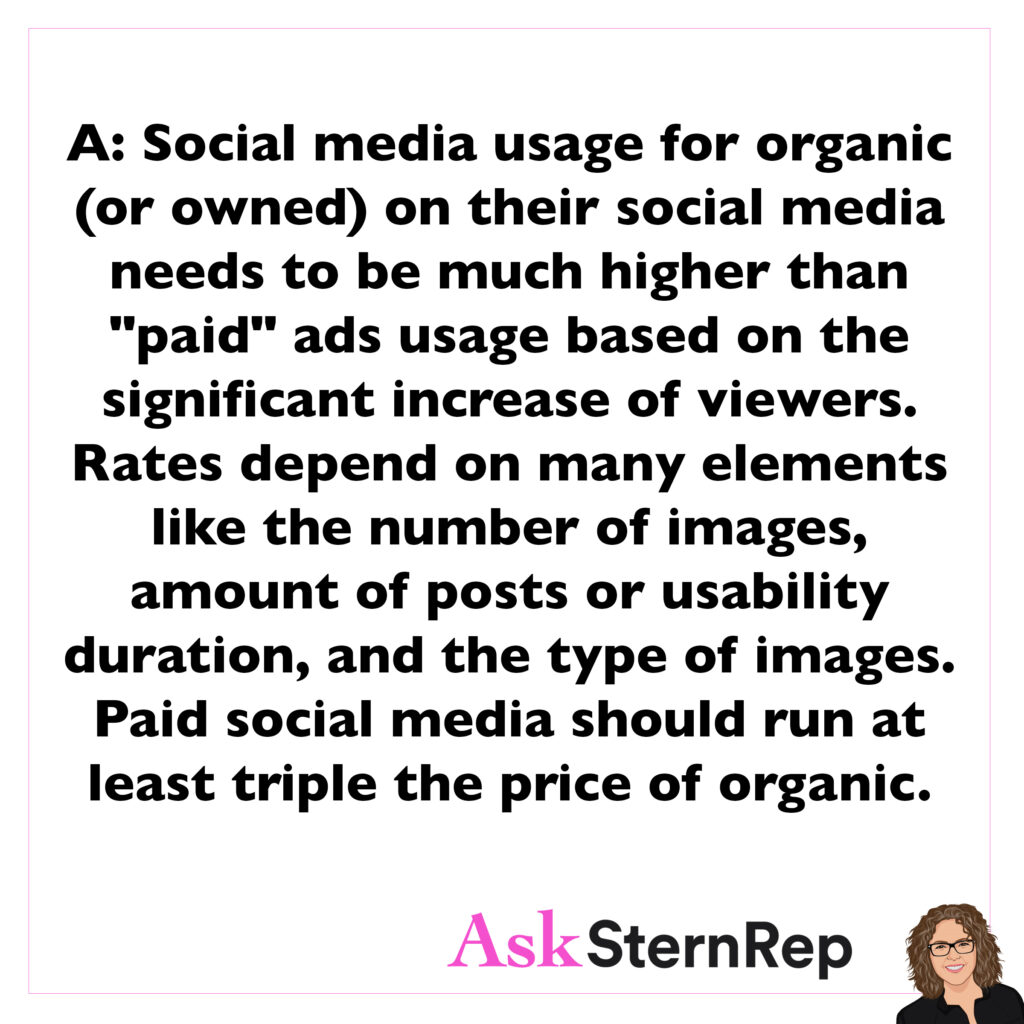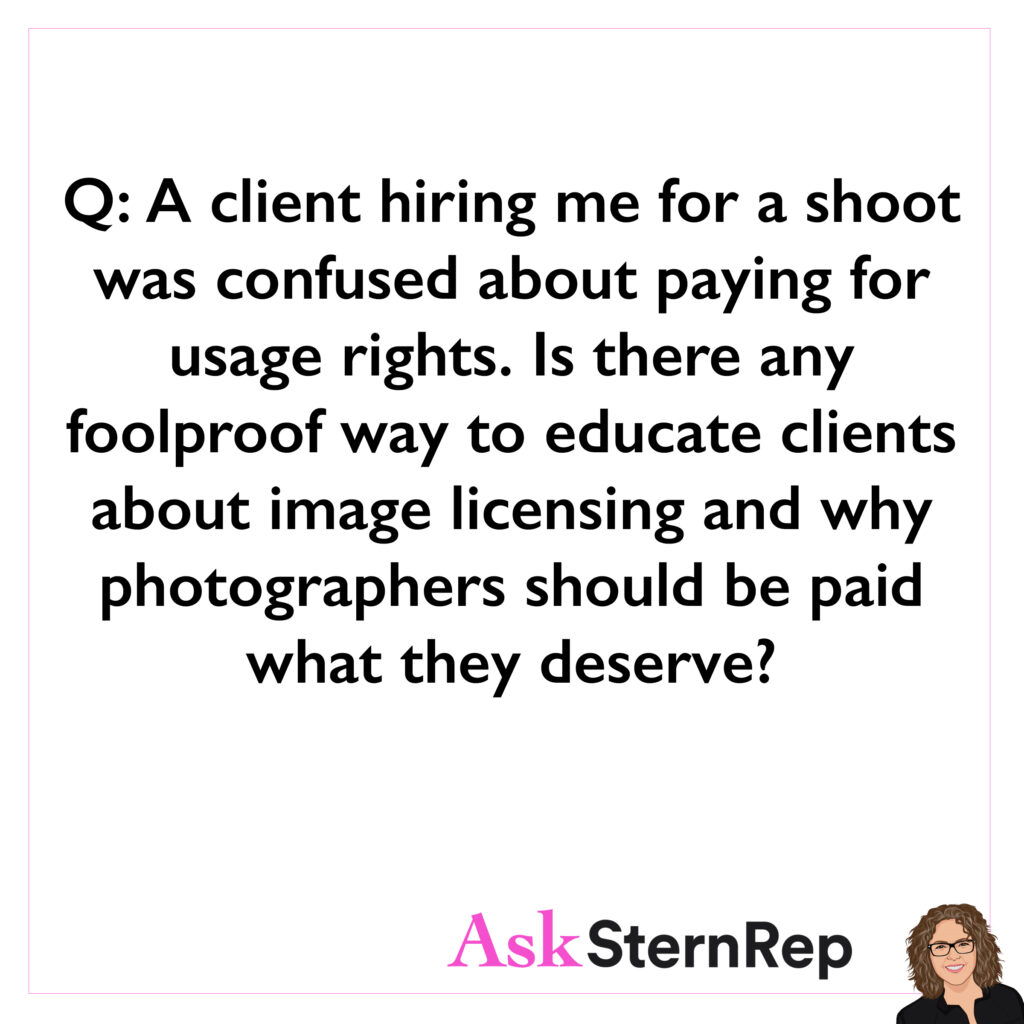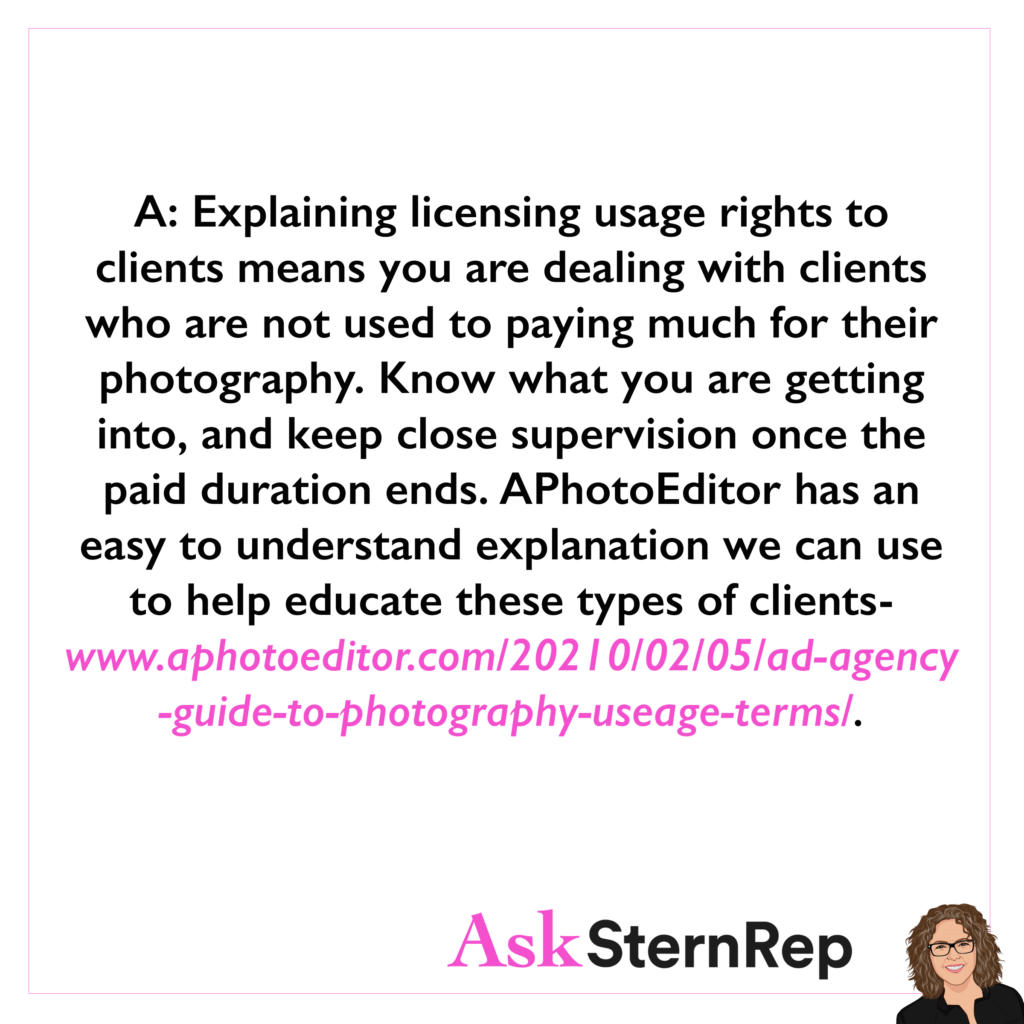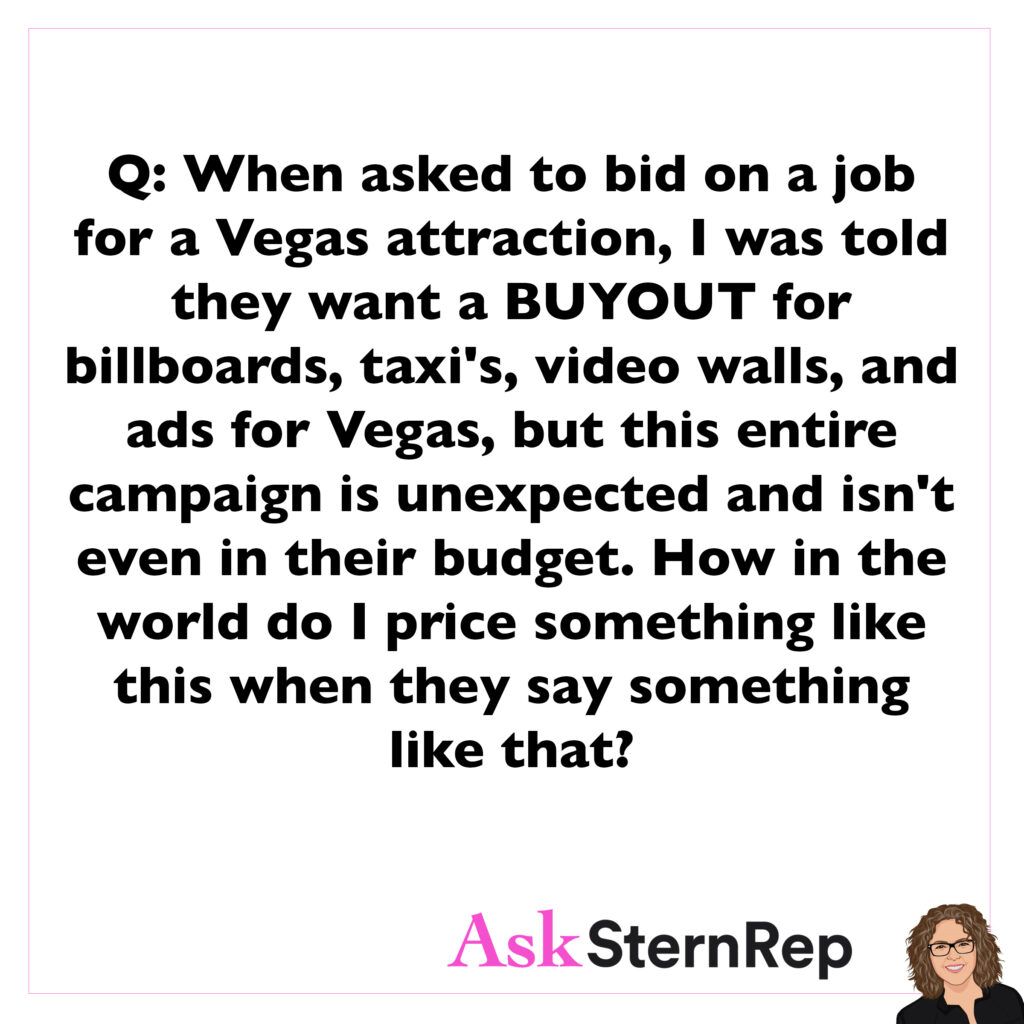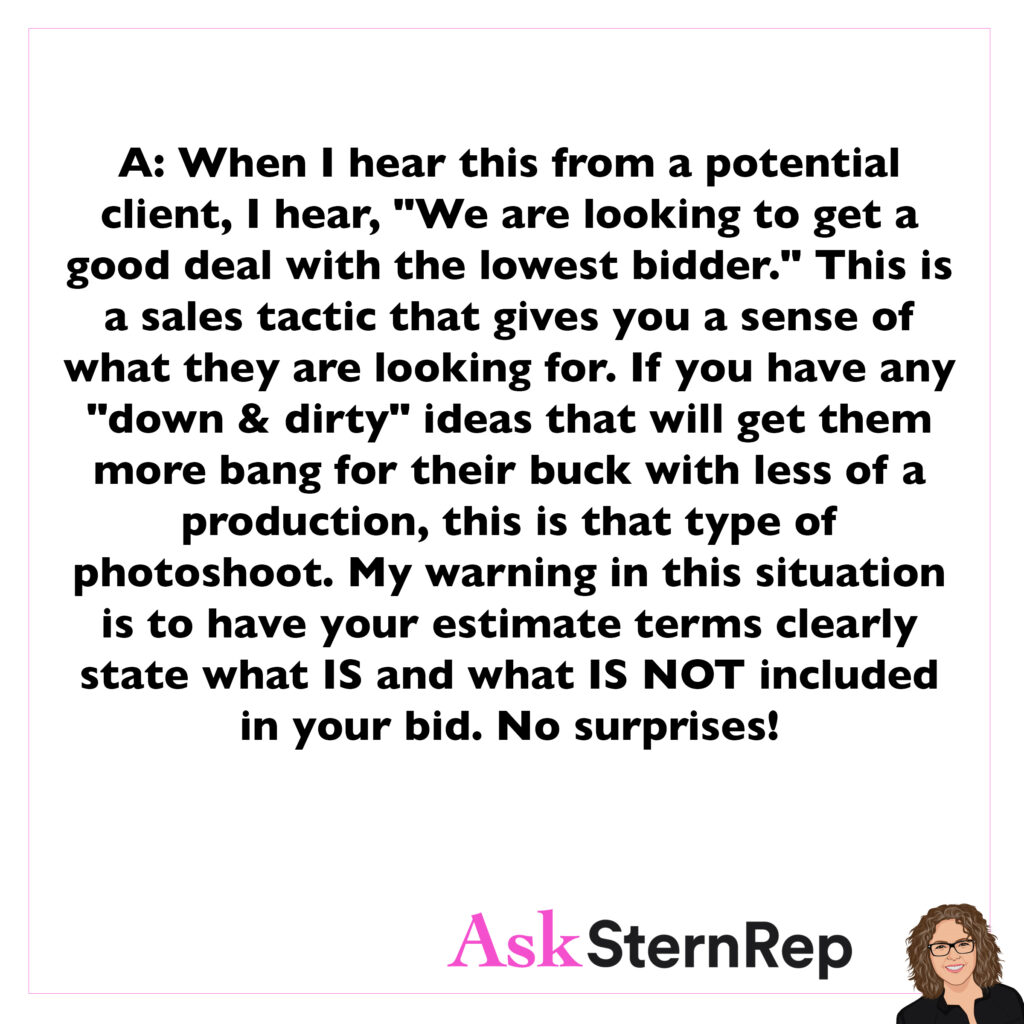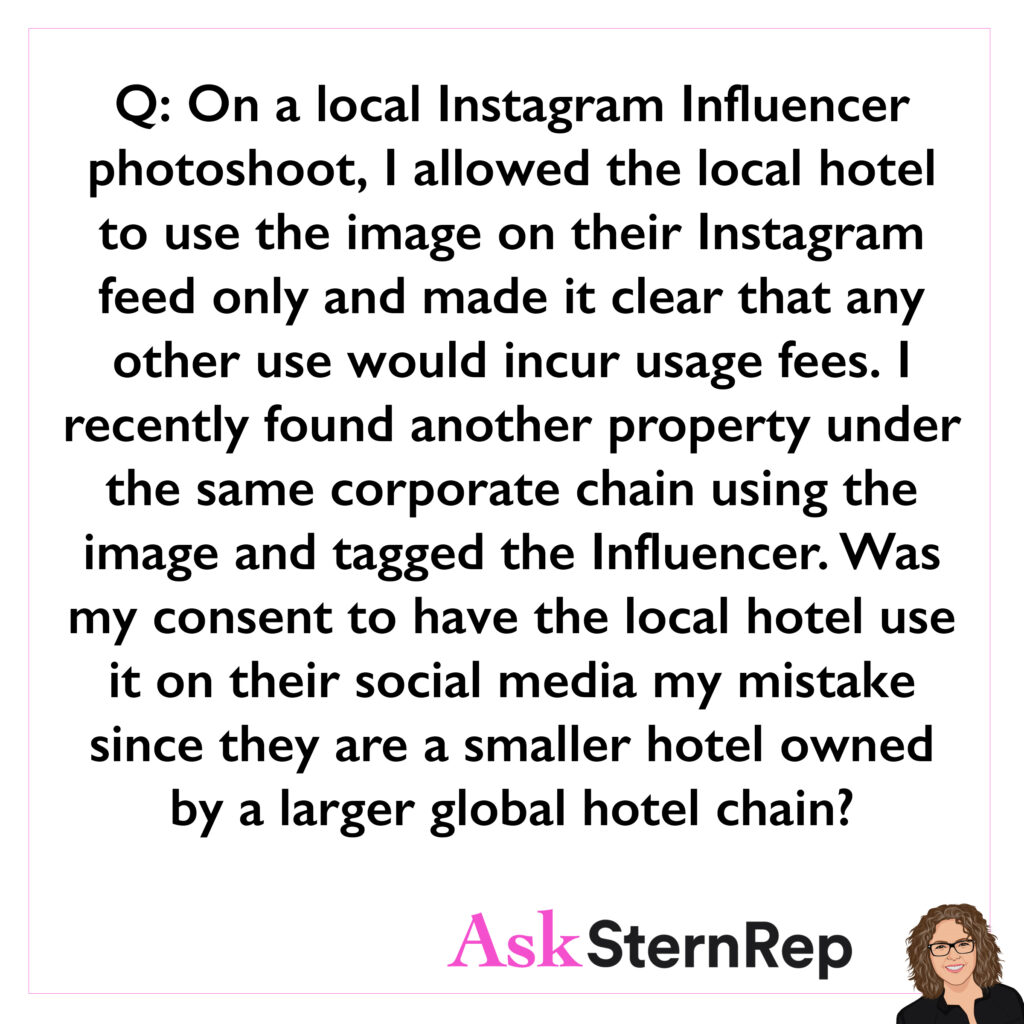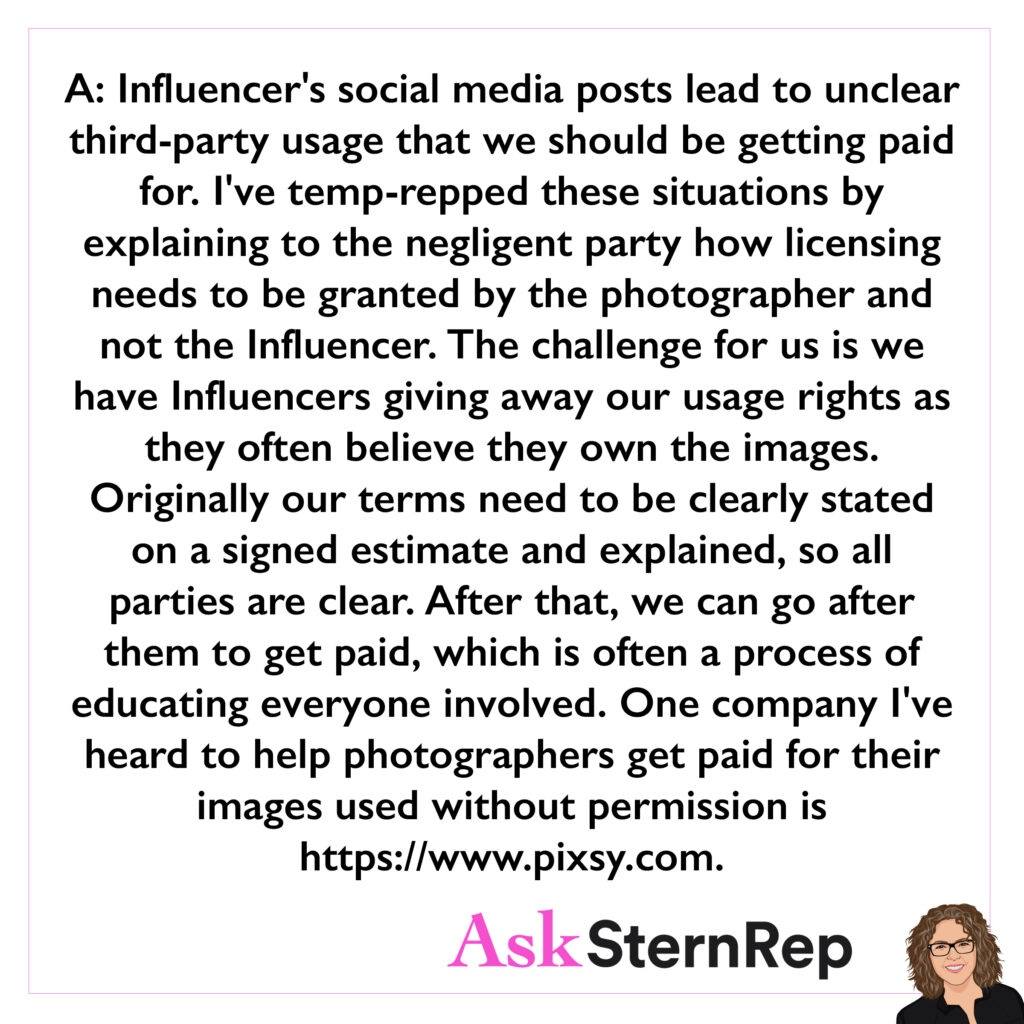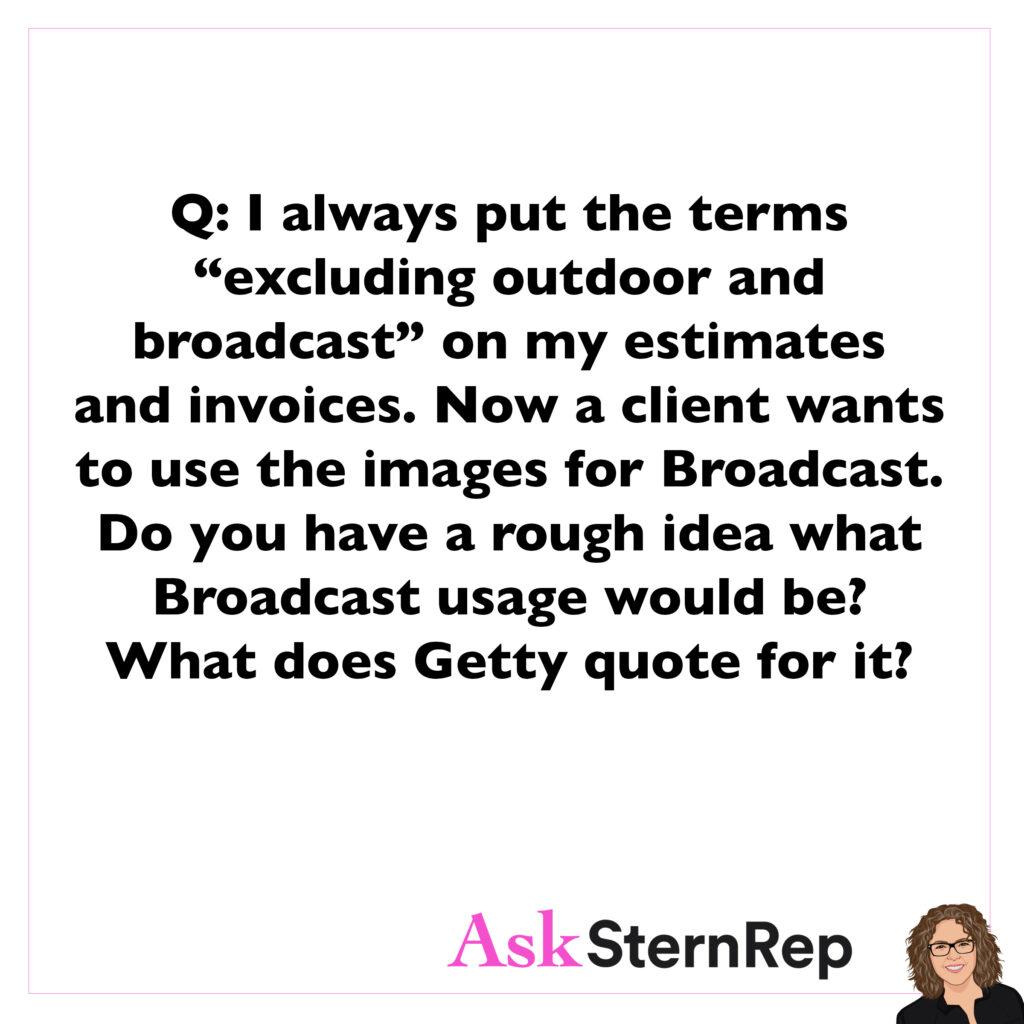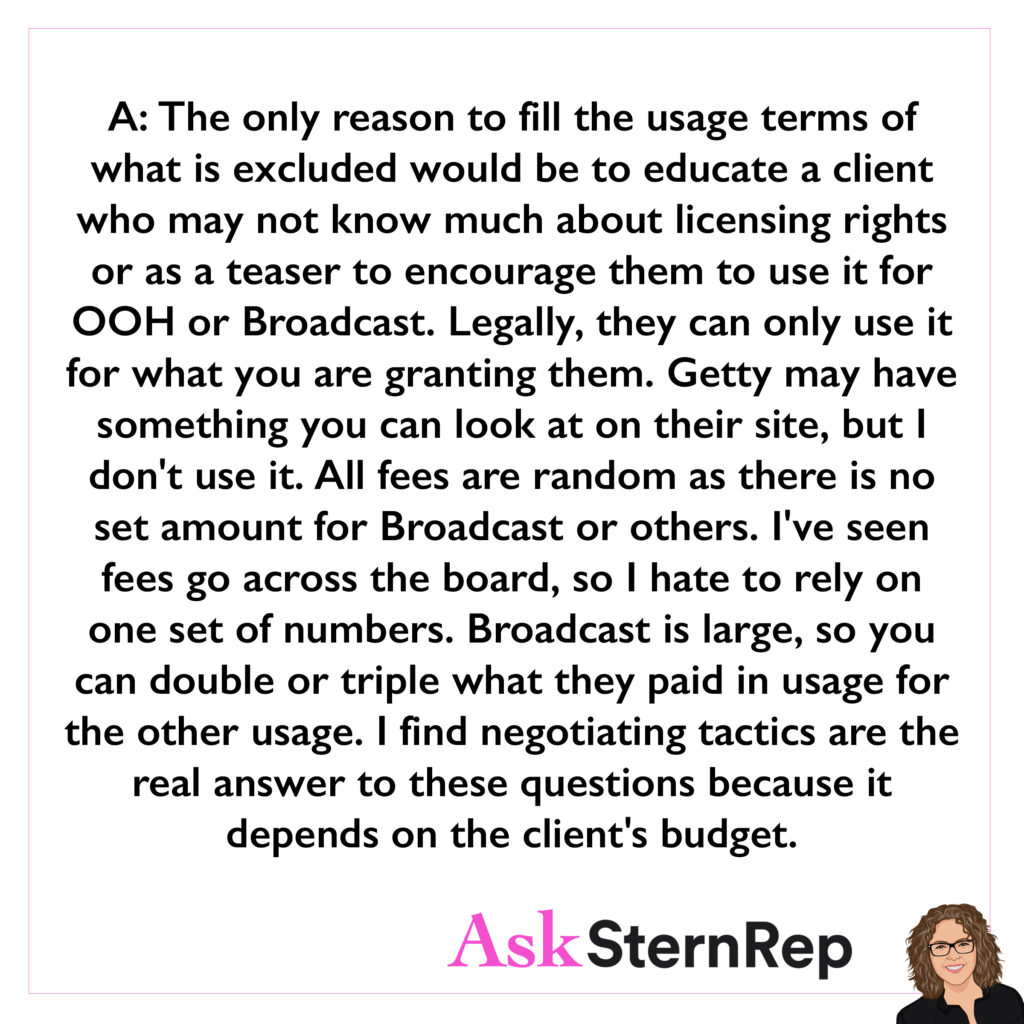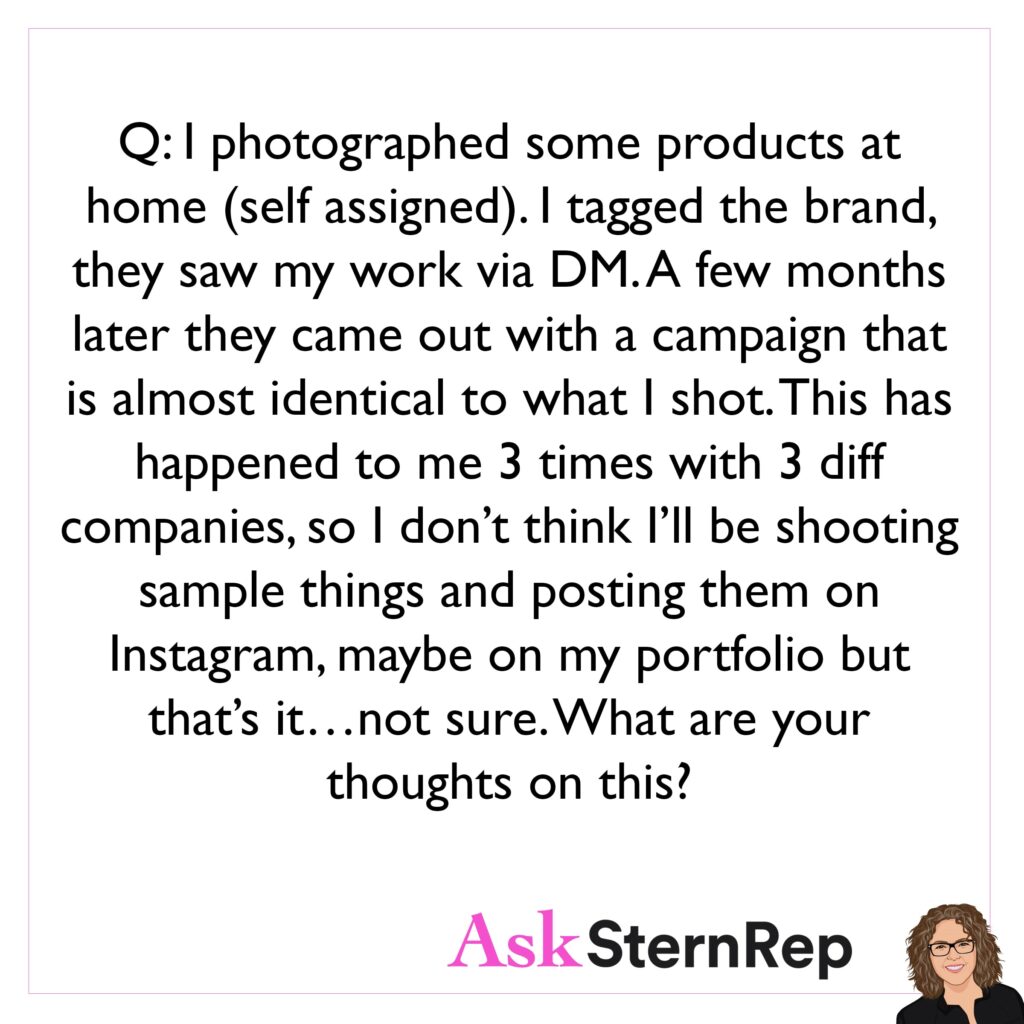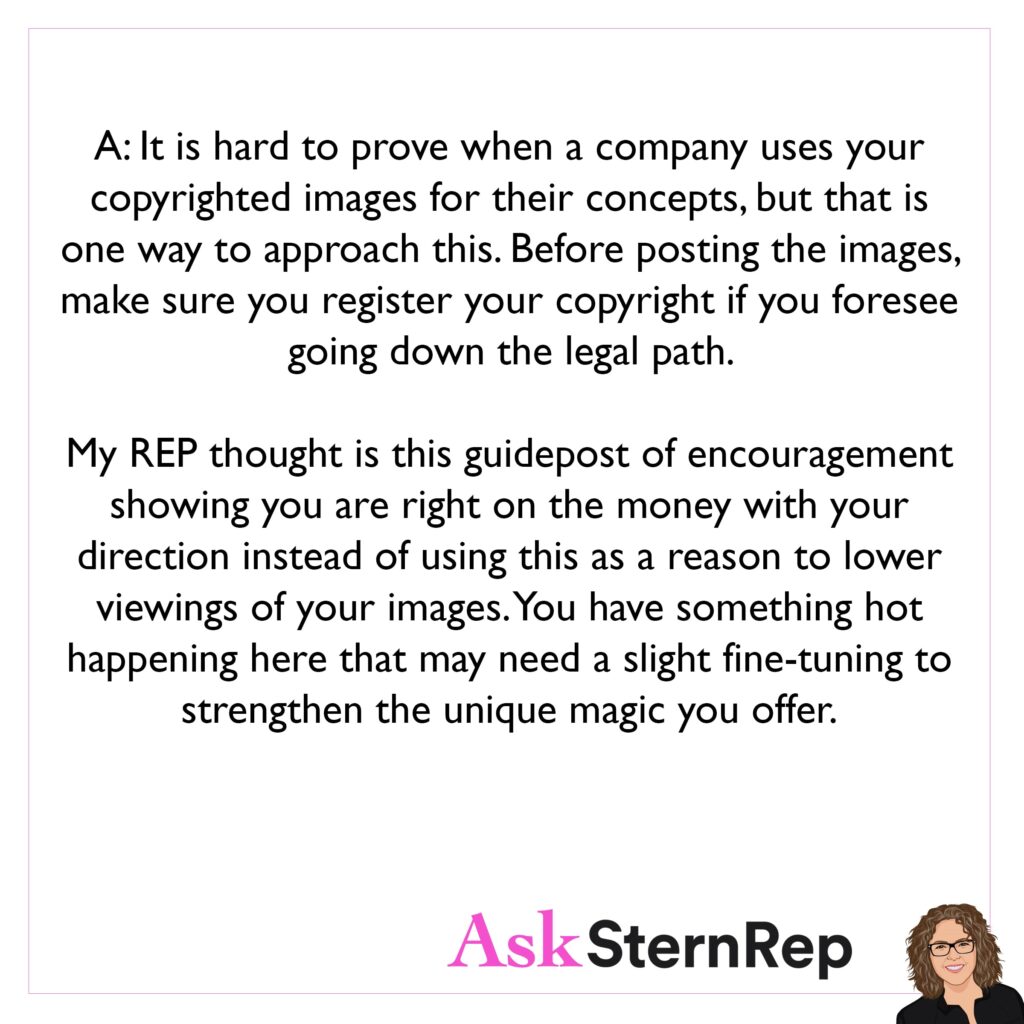When offered an exciting job for a low budget, you can always offer your time and usage licensing for a discounted rate while having the client handle all production. If you feel you can create high-quality images, these jobs require clear terms of what you are and NOT including.
Sample Negotiation:
Client: How much would it be to shoot this?
You: I don’t have enough information to give you an accurate price. What is your budget?
Client: We have $2000.
You: For a $3500 discounted rate, I would do this for one month of social media for four final images within an 8 hour shoot day, and that does not include any production expenses only my time.

